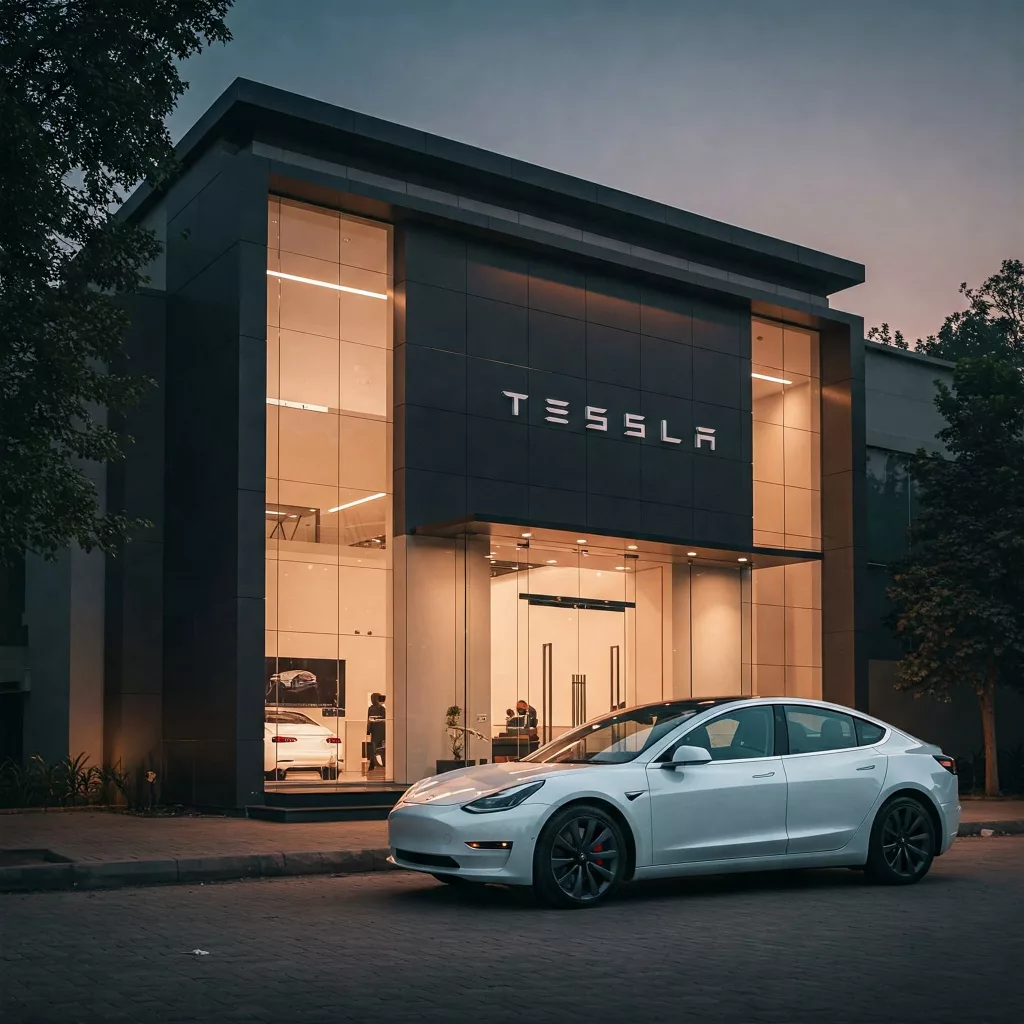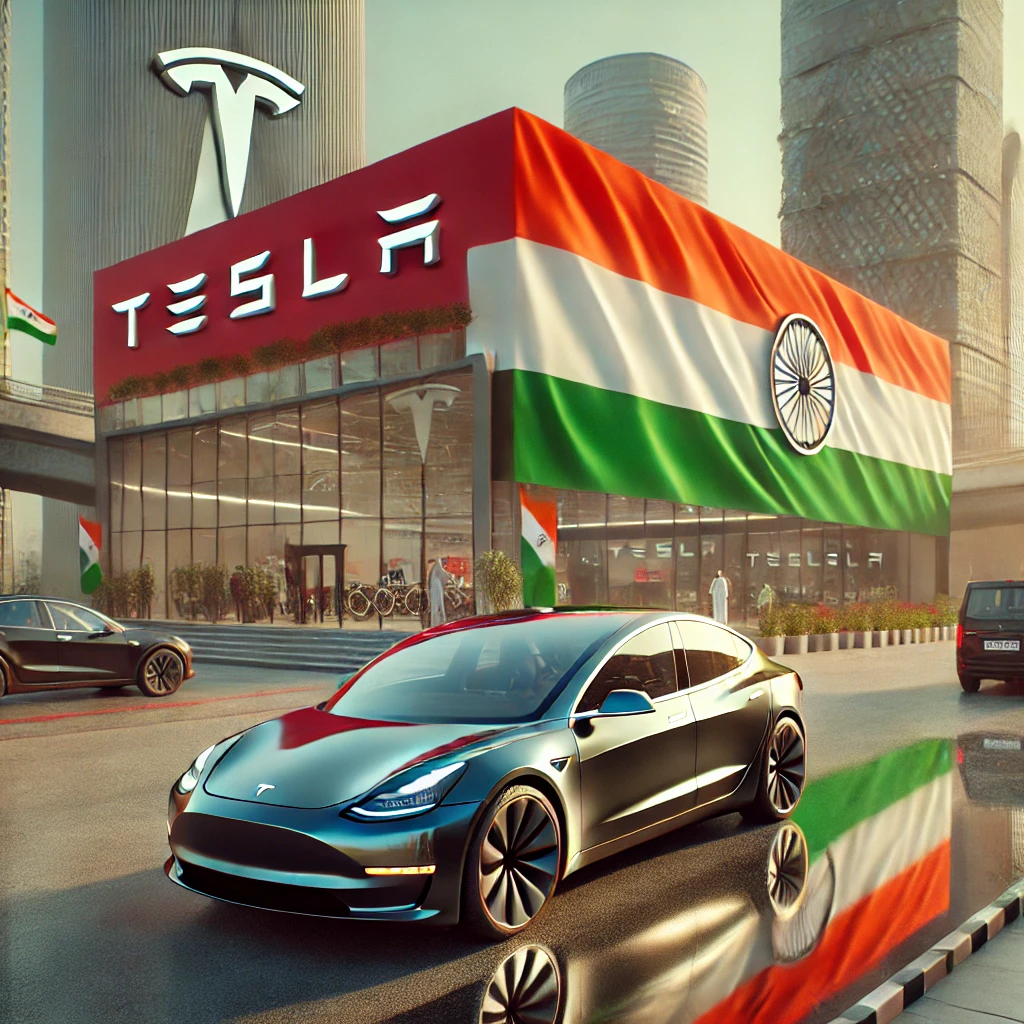Tesla’s long-anticipated arrival in India is finally here, and it’s poised to ignite a revolution in the nation’s electric vehicle (EV) landscape. More than just another car manufacturer, Tesla represents a paradigm shift, bringing not only cutting-edge technology but also a powerful brand image that resonates with a growing segment of environmentally conscious and tech-savvy Indian consumers. This comprehensive analysis explores Tesla India’s ambitious plans, potential impact, and the challenges it faces in navigating the complex Indian automotive market.
Tesla India: Expansion Strategy
Tesla’s entry into India is not a fleeting venture. The company is laying the groundwork for a long-term presence, encompassing showrooms, service centers, and a robust charging infrastructure. Initial Tesla showroom locations are strategically planned for major metropolitan areas like Mumbai, Delhi, and Bangalore, targeting affluent Indian demographics with a demonstrated interest in premium vehicles and technological innovation. These cities serve as crucial hubs for both business and cultural influence, maximizing Tesla’s visibility and brand impact.
Beyond the initial showrooms, Tesla India is committed to establishing a nationwide network of service centers and Supercharger stations, addressing a critical concern for potential EV buyers: range anxiety. This investment in infrastructure signals Tesla’s commitment to creating a seamless ownership experience, mirroring the comprehensive ecosystem it has cultivated in other markets. This long-term vision signals Tesla’s confidence in the Indian market’s potential.
Tesla India: Balancing Price and Premium – Expected Prices Revealed (Estimates)
Tesla’s initial offerings in India are expected to include the Model 3 and Model Y, targeting the premium segment of the Indian car market. While pricing is a crucial factor in India’s price-sensitive market, Tesla aims to strike a balance between affordability and the premium features that define its brand. Here’s a look at the expected price ranges:
| Model | Expected Price Range (INR) | Notes |
|---|---|---|
| Model 3 | ₹45-55 Lakh | Base Model, subject to import duties and final configuration. |
| Model 3 Long Range | ₹55-65 Lakh | Long Range variant, higher price due to larger battery and increased range. |
| Model 3 Performance | ₹65-75 Lakh | Performance variant, top of the line model with faster acceleration. |
| Model Y | ₹70-80 Lakh | Base Model, subject to import duties and final configuration. |
| Model Y Long Range | ₹80-90 Lakh | Long Range variant, higher price due to larger battery and increased range. |
| Model Y Performance | ₹90-1 Crore | Performance variant, top of the line model with faster acceleration. |
Important Note: These prices are estimates based on current market conditions and import duties. Actual prices may vary depending on the final specifications, import duty rates at the time of launch, and Tesla’s pricing strategy for the Indian market. It’s always best to check with Tesla India directly for the most up-to-date pricing information once they officially launch.

The expected price points for the Model 3 and Model Y place them in the luxury car bracket, appealing to buyers seeking exclusivity and advanced technology. Although potentially higher than locally manufactured EVs, Tesla’s competitive pricing strategy, coupled with its superior technology, extended range, and iconic brand, positions it as an attractive proposition for discerning Indian consumers. The appeal lies not just in the car itself, but in the lifestyle and status that the Tesla brand embodies.
The Ripple Effect: Transforming the Indian EV Ecosystem
Tesla’s entry into India is more than just the arrival of a new car brand; it’s a catalyst for the entire Indian EV ecosystem. Several key impacts are anticipated:
- Accelerated EV Adoption in India: Tesla’s presence will undoubtedly raise awareness and generate excitement around electric vehicles, driving increased adoption across the board. The “Tesla effect” can inspire other manufacturers to accelerate their EV development and offerings, further expanding the Indian EV market.
- Job Creation and Economic Growth: Tesla India’s operations in India will create numerous job opportunities across various sectors, from manufacturing and sales to service and infrastructure development. This influx of investment and employment will contribute to the overall economic growth of the regions where Tesla establishes its presence.
- Infrastructure Development for EVs in India: Tesla’s commitment to building a Supercharger network will not only benefit its own customers but also encourage the development of charging infrastructure by other players in the Indian market. This expansion of charging options will alleviate range anxiety and make EVs a more viable option for a wider range of Indian consumers.
- Policy Influence on EVs in India: Tesla’s presence and success in India can influence government policies related to EVs, potentially leading to more favorable incentives and regulations that further promote the growth of the Indian EV sector.
Navigating the Challenges: Overcoming Obstacles to Success in India
Despite the immense potential, Tesla India faces several challenges in the Indian market:
- Import Duties and Pricing Strategies: High import duties on completely built units (CBUs) pose a significant hurdle, potentially inflating the prices of Tesla vehicles in India. The company’s ability to navigate these import duties and potentially establish local manufacturing will be crucial for long-term success.
- Competition from Local EV Players: Established Indian automakers like Tata Motors and MG Motors have already made inroads in the EV market with more affordable options. Tesla will need to effectively differentiate itself and justify its premium pricing to compete against these established players.
- Charging Infrastructure Limitations in India: While India’s charging infrastructure is improving, it still lags behind other developed markets. Tesla’s investment in its Supercharger network is a positive step, but widespread adoption of EVs will require a concerted effort from both public and private sectors to expand charging options across the country.
- Consumer Perceptions and Preferences: Indian car buyers have specific preferences and expectations, particularly regarding fuel efficiency, maintenance costs, and after-sales service. Tesla will need to adapt its strategies to cater to these nuances and build trust among Indian consumers.
The Verdict: Is India Ready for Tesla?
Tesla’s entry into India marks a pivotal moment for the country’s EV journey. While challenges remain, the potential benefits are undeniable. Tesla’s brand appeal, technological prowess, and commitment to infrastructure development position it to significantly influence the Indian EV market.
The question is not whether India is ready for Tesla, but rather how effectively Tesla can adapt to the unique dynamics of the Indian market. Success will depend on a combination of strategic pricing, robust infrastructure development, and a deep understanding of Indian consumer preferences. If Tesla can navigate these challenges effectively, it has the potential to not only capture a significant share of the premium EV market but also play a crucial role in accelerating the overall adoption of electric vehicles in India. This marks a new era for electric mobility in the country.
🚗⚡ Tesla is finally coming to India! 🇮🇳🔥
— Guest (@VishalS68153046) February 19, 2025
Will Tesla revolutionize India’s car market? 🚀⚡
🔗 Read more: https://t.co/yf711HIqZG#TeslaIndia #EVRevolution #TeslaModel3 #SustainableFuture
